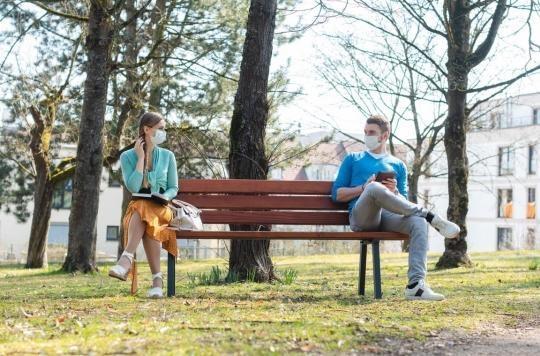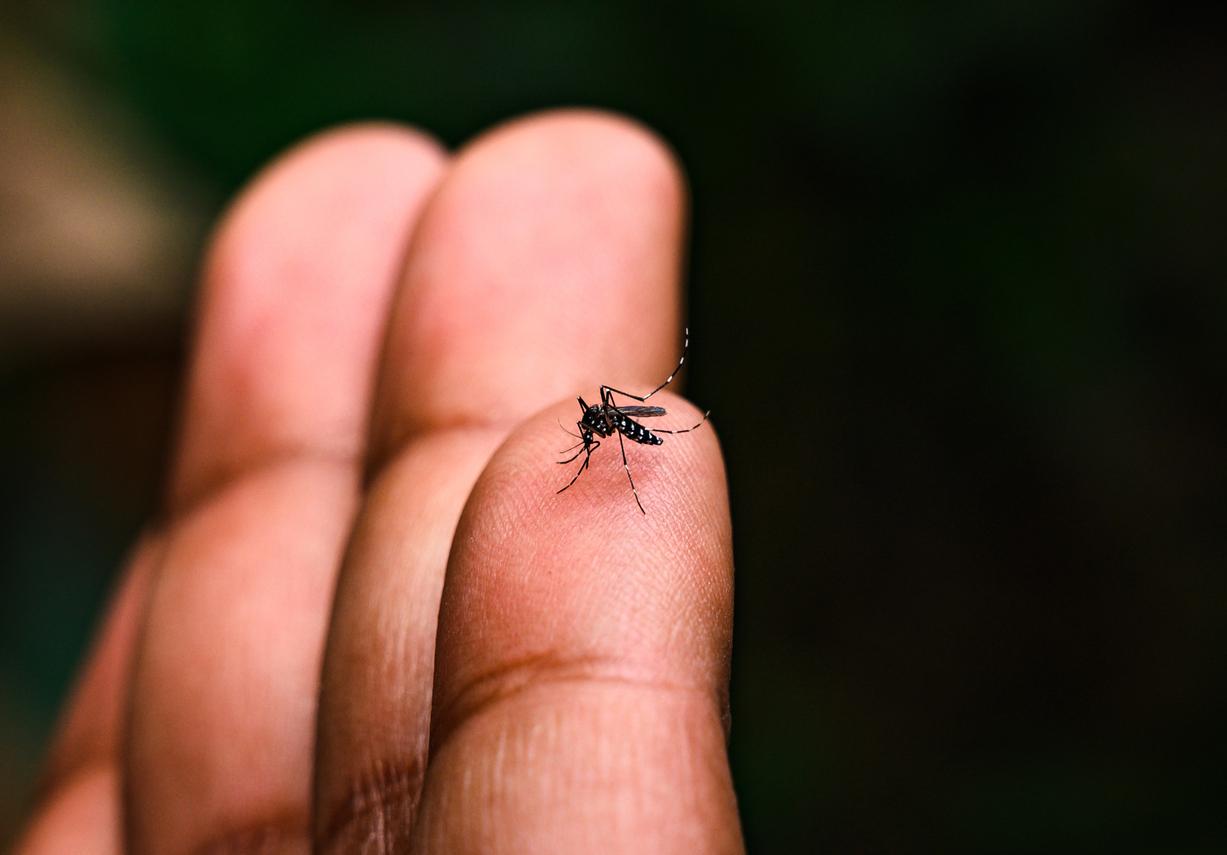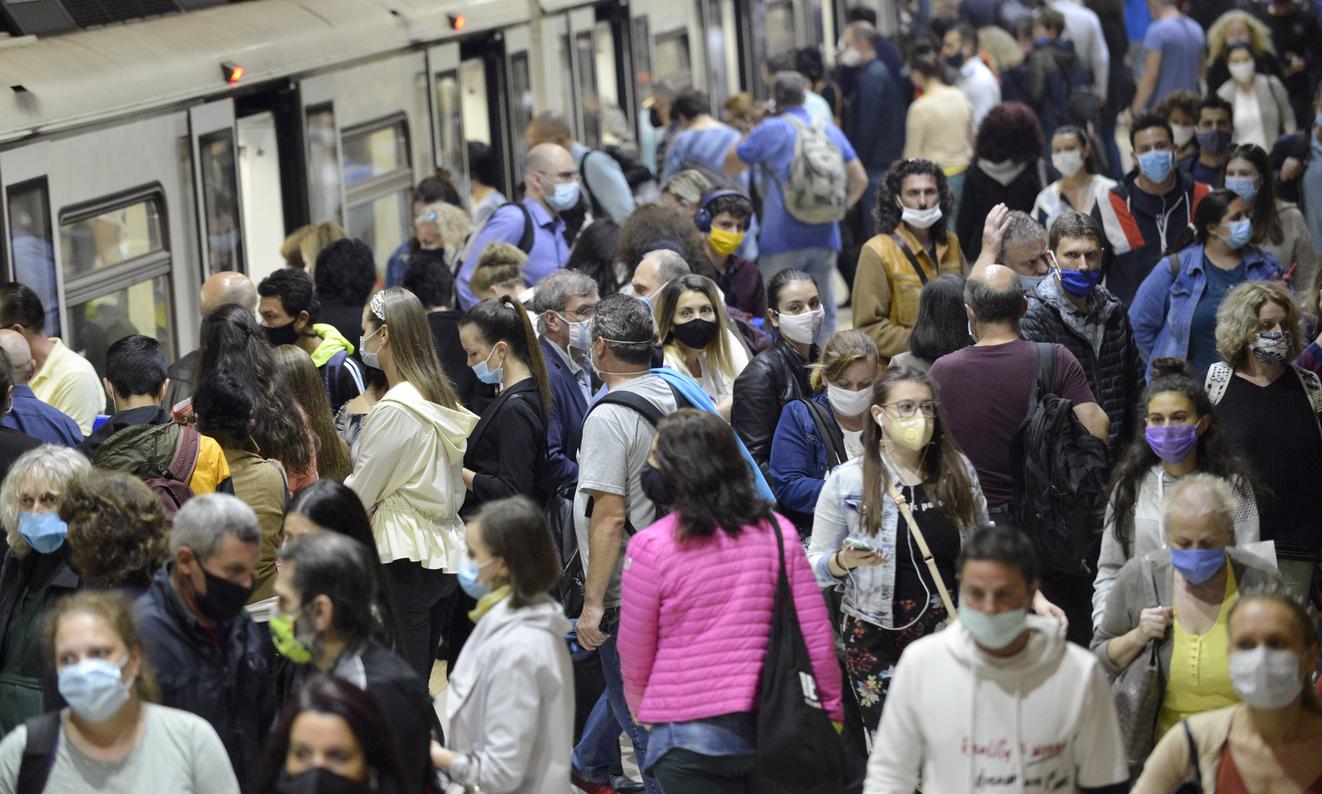For sociologist David Le Breton, wearing a mask and the physical distances imposed by the Covid-19 epidemic erase our individuality and undermine human relationships.

The current health crisis is upsetting our relationship with others, not only because of the physical distance imposed between people, but also because of the wearing of a mask. For David Le Breton, professor of sociology and anthropology at the University of Strasbourg and author of the books, Faces. An essay in anthropology (Métailié editions, 1992) and Walk life. A quiet art of happiness (to be published on May 28 by Métailié editions), this tool, now necessary to limit the spread of Covid-19, erases our individuality and undermines human relationships. Associated with the distance imposed between beings, it reinforces the idea that the other is a potential danger.
“The face is the place of mutual recognition, it is also the place of our extreme singularity, what distinguishes us from each other. These are our traits, our specificities. And there, with the mask, we all find ourselves uniformed. Of course, some will aestheticize their mask but we become somewhat anonymous. It damages social relations and the pleasure we have in exchanging with others”he explains to Franceinfo in an interview published on May 14.
Not easy indeed to support a normal discussion between masked people. Facial expressions become invisible and interaction more difficult, especially when interacting with people you don’t know very well, such as colleagues or shopkeepers.
The mask, prerogative of the bandit
This is why David Le Breton finds it hard to imagine going back to school at the start of the school year “with a mask in front of an assembly of masks”. “There is a relationship of complicity with the students (…) And there, the mask does not. We become characters who are not completely anonymous but we can identify less with the other when he speaks to us hidden behind a mask”, he argues, recalling in passing that in Western society, unlike Asian culture where wearing a mask is commonplace, the individual takes precedence over the group. “The more a society places importance on individuality, the greater the value of the face”he explains in a column published in The world May 11.
“Without a face to identify it, anyone has the possibility of doing anything, confidence will undoubtedly be shaken. A masked individual becomes invisible. No one can recognize it. The forehead and the eyes are not enough to identify him in a crowd where everyone wears the same mask”he continues.
Let us also remember that in the collective imagination, the mask is the prerogative of the bandit. Could wearing one give way to anything and everything, facilitate the balance of power and incivility? “The effacement of the face thanks to this stratagem leads to a feeling conducive to transgression, to the transfer of personality. It frees from the constraints of identity and allows the temptations that the individual is used to repressing or that he discovers thanks to this experience to flourish where he no longer has to account to his face. He no longer has to fear not being able to look himself in the face and answer for his actions since he hides his face from his attention and that of others.writes André Le Breton.
Once the threat of the virus has passed, “the handshake will resume its rights”
Also, the academic is certain: as soon as possible, the mask will be “one of the first things we will liquidate”. That and the physical distances of course.
“Barrier gestures put the body of the other at a distance by making suspicious a presence too close, and even more so the handshake or the kiss, which impose a contact”, he recalls. If the French still have to remain cautious, “once the threat has disappeared, the handshake will resume its rights”, assures the expert. On the other hand, the culture of the bise could well be definitively compromised, insofar as this “imposes a proximity of the faces and a greater difficulty in erasing the traces of the contact in the event of fear of a possible contagion”.
.















